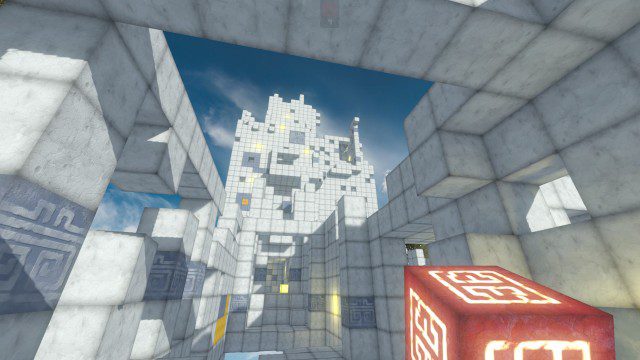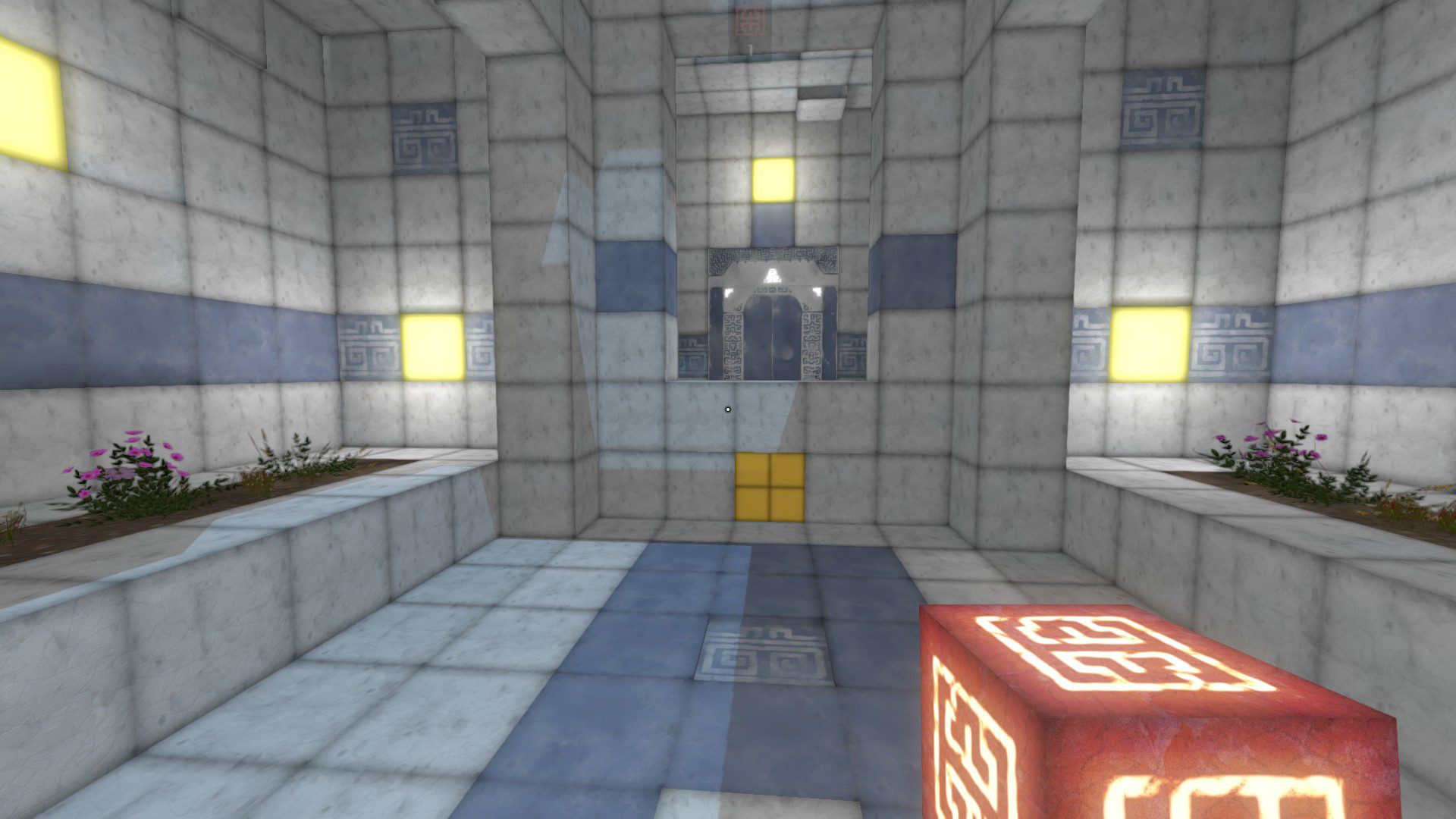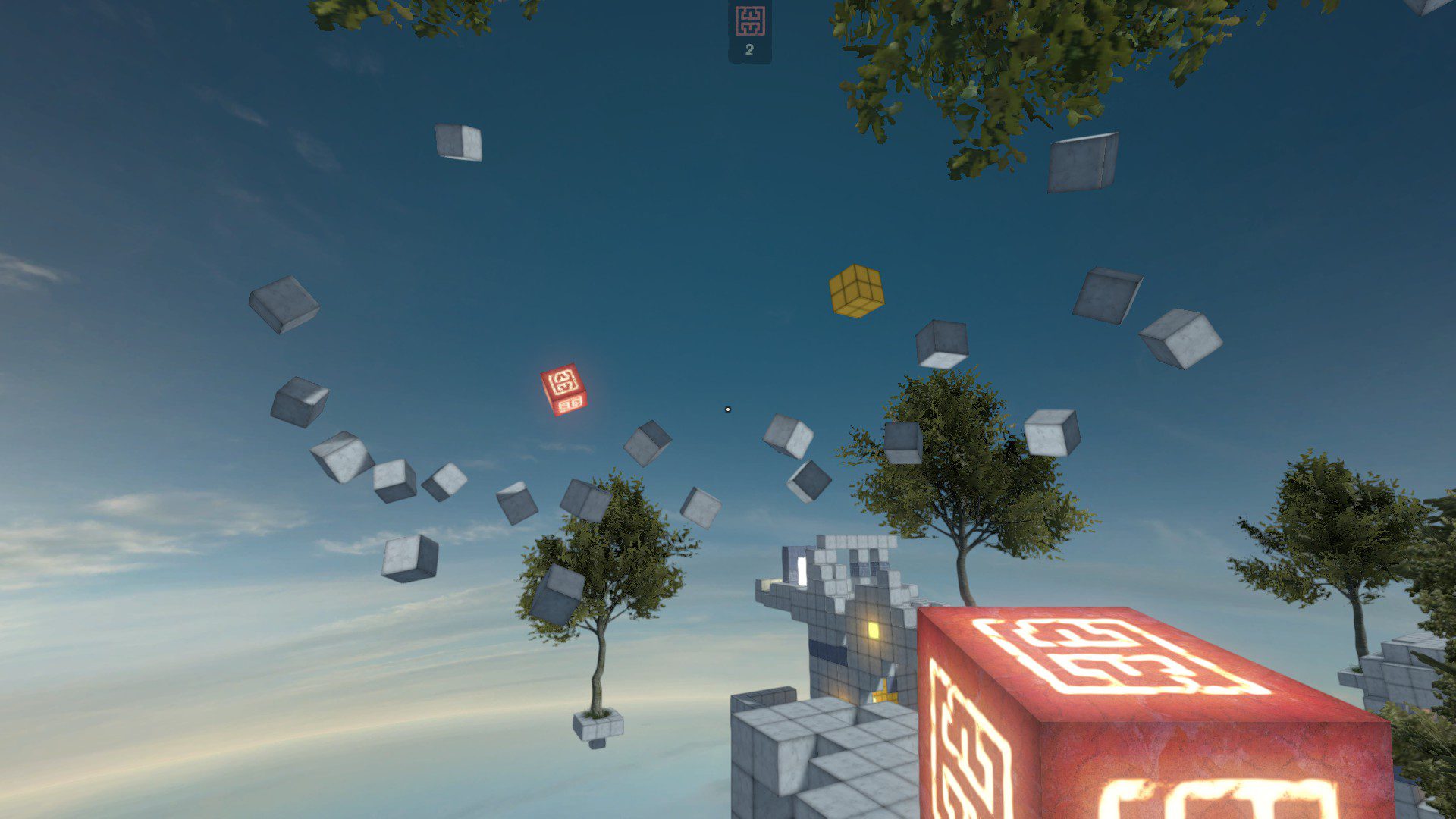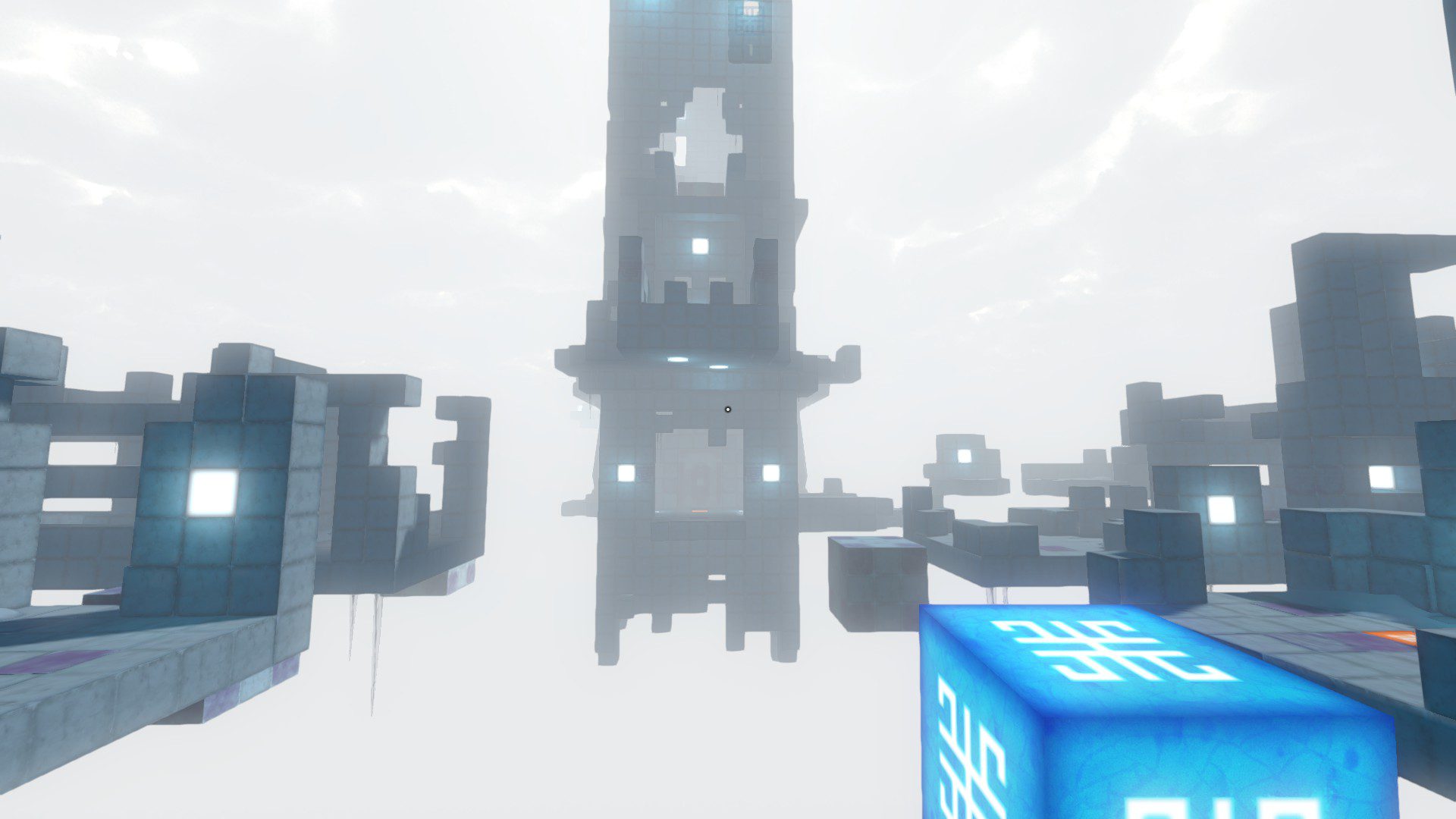First person adventures have always been a tricky minefield to wade through. Forcing the player to slow down to focus on puzzle aspects tends to ruin an experience, but Qbeh-1 never forces the player to slow down and conform to it vision, rather it clearly begins as a slower paced adventure. There are no demons from Hell to vanquish; no foreign invaders to dispel; no army of space bug to eradicate; just a calming first-person block building style game.
More often than not, when I sit down to play a puzzle game, or any game of a slower nature (point and click adventure come to mind) I tend to have problems focusing for extended periods of time. With regards to puzzle games, I get strained trying to keep up with gradually ramping difficulty or with the puzzles being to easy and predictable. With adventure games I lose focus with puzzles that become far to obtuse for their own good which end up making my fall asleep at my desk. So you can imagine my trepidation when approaching Qbeh-1.
Needless to say that my fear was assuaged within the first few minutes of playing. Qbeh-1 begins without so much fanfare that precedes other titles. There is no twenty-minute into cutscene from a team trying to justify their parents spending their life savings on a degree from some trendy art school; no explicit backstory told through a scrolling calligraphy done text with a voice over from some famous actor; no tutorial level teaching you the basics of how to play video games as if it were the first time you’ve seen this fantastical new medium of entertainment; you just drop in and go.
Qbeh-1 just places you straight into the adventure and lets (not forces) you to learn about the games mechanics by doing. It’s a devilishly simple concept of game design that has been all but forgotten and replaced by loading screens full of gamepad/keyboard commands that require an advanced degree in mathematics to understand. When you figure out a puzzle or find how to use a new block, you feel a genuine sense of accomplishment; the kind of accomplishment that sticks with you and makes you want to keep playing.
Gameplay wise Qbeh-1 has you solving a number of elaborate puzzles that become gradually harder as you progress. These puzzles consist of using a variety of ‘Cube’ types that each have a special function in solving the games many levels. The three blocks that will aid you on your journey consist of Building Blocks that allow you to attach them to specially designed yellow puzzle inserts that allow for stacking and building, allowing the player to traverse to areas that would otherwise be impossible to reach. The other two block types are Energy Cubes which power certain objects such as doors, and Gravity Cubes that can be used to manipulate gravity and certain platforms. While there may only be three main block types, this does not limit the experience in any way. The puzzles are laid out in such a way that your progression will feel natural while still keeping your brain on its toes.
The game is set among the stars across several cube like worlds of distinctive style, each consisting of six sub-levels that each contain secrets encouraging replay. All of this is backed with a soundtrack that fits the game well, creating a relaxing atmosphere within each world. Even better is the fact that Qbeh-1 doesn’t force some pretentious story down the players throat. Instead, the game lets you experience its narrative through the imagery present throughout your playthrough. There is a story present, but you are free to interpret it in any number of ways.
Qbeh-1: The Atlas Cube plays as nice as its screenshots purport. This is something that rarely happens with many games thanks in part to a heavy reliance on Photoshop and tweaked visuals. If you enjoy what you see in stills and in the trailer, it’s safe to assume you are going to have a fantastic experience. This is a game that is easily going to stick with you longer than most AAA titles will this year.
As with most things, Qbeh 1: The Atlas Cube isn’t without its faults. The first person nature of the game is somewhat tempered thanks to the fact that your movement is slow, even when automatic running is enabled. During play there where a number of times I wished that I could run just a little bit faster, but this may just be because of what I’m accustomed to from FPS games. The music, while fitting, may begin to wear on many people’s nerves with its repetitive nature. You will also encounter a number of minor glitches, most notably when standing on a block platform you will be able to look down and spin 360 degree with your body floating in midair (this is an old FPS issue).
All that aside, Qbeh-1 is a fantastic and beautifully crafted game that serves as a welcome escape from the stresses of day-to-day life, as well as the overbearing self-indulgence of most cinematicly heavy-handed attempts at modern FPS games. It must also be stated that the game is only $9.99 on Steam and for that price it shouldn’t be missed.




